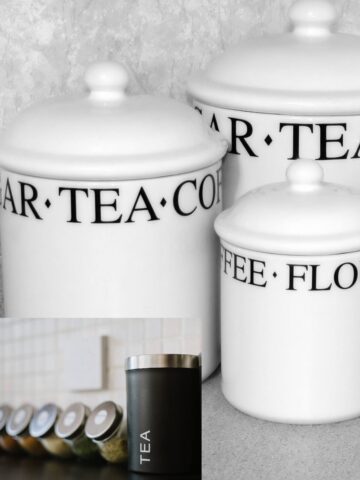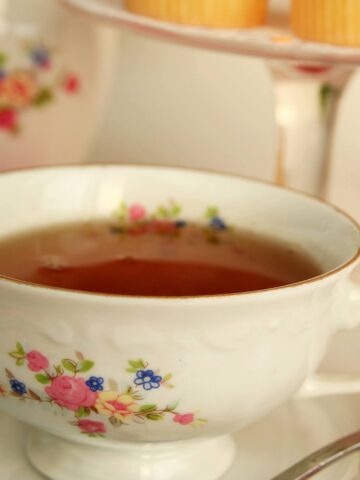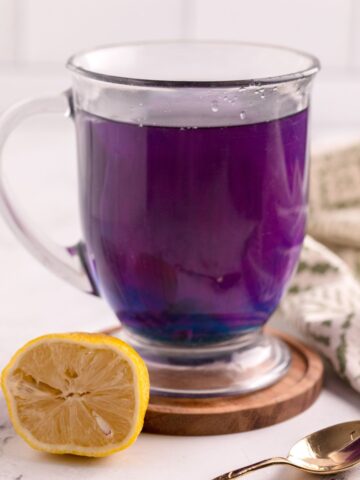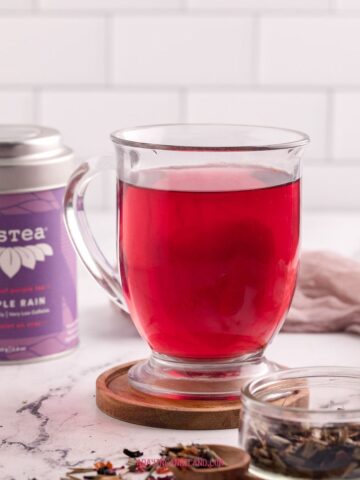Tea is one of the most popular drinks in the world, and it’s no surprise that organic tea has become a popular drink as well. What is organic tea you ask? Organic tea is any type of tea grown without pesticides or artificial fertilizers. The goal of drinking organic teas is to avoid chemicals from being ingested into your system, which can cause cancer, hormonal imbalances, and other health problems. Enjoy the art of tea with Organic and Fair Trade Teas.
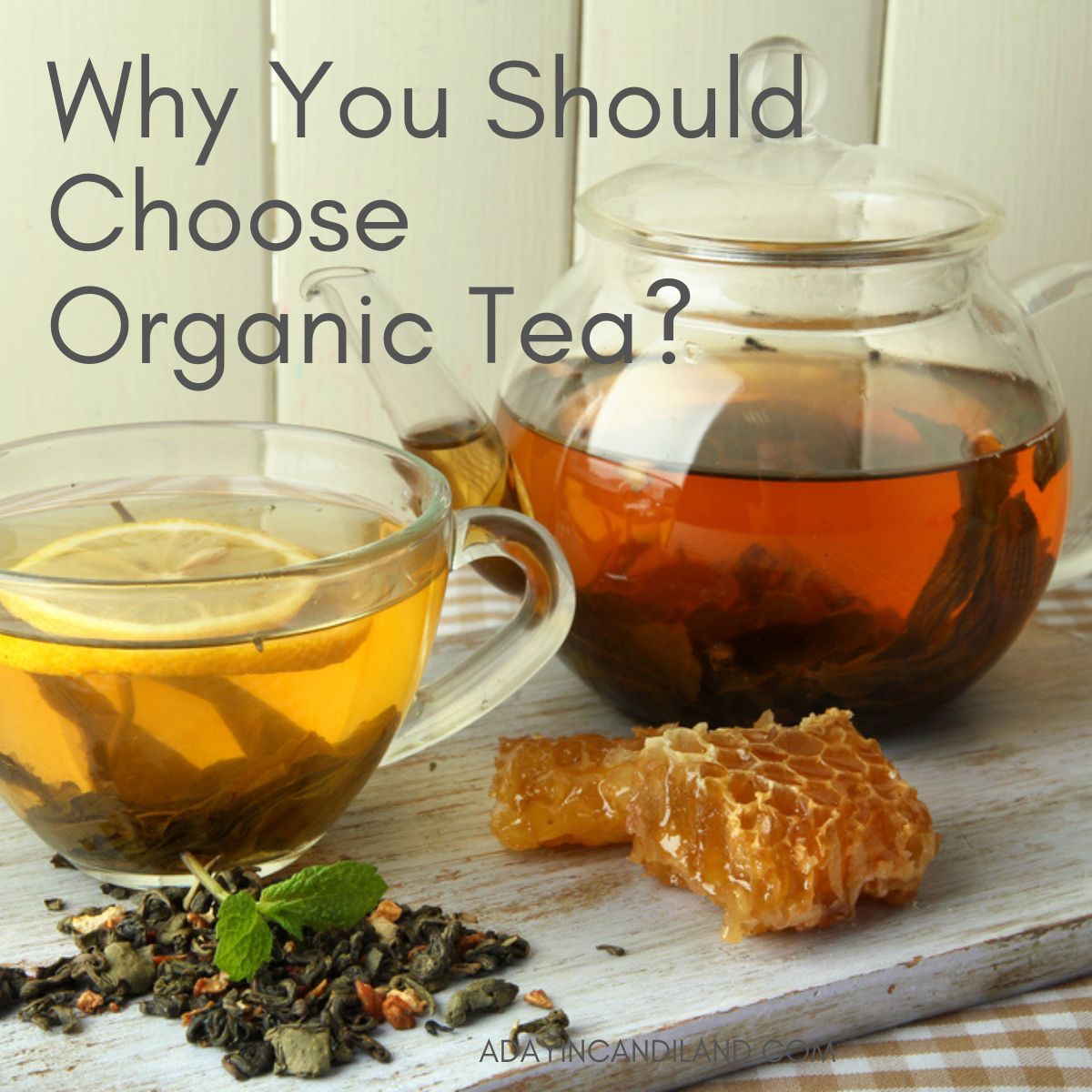
*This post may contain affiliate links. If you make a purchase, I get a small commission. Please see my disclosure policy for details
Get our Beginner’s Guide to Tea Here
- Beginners Guide to Herbal Tea
- Beginners Guide to Black Tea
- Beginners Guide to Green Tea
- Beginners Guide to White Tea
- Puerh Tea Benefits
Why choose Organic Tea
Tea lovers know that there are many, many different types of tea to choose from. Loose leaf, tea bags, white tea, green tea, black tea, and now you have to decide between organic tea or non-organic tea. So first, let’s talk about what organic tea is.
Organic tea is a tea that is grown without the use of any synthetic herbicides, pesticides, or fertilizers. Basically, it means tea that is free of any type of harsh or unnatural chemicals. So why should you choose organic tea? Lots of reasons so let’s discuss them all here. Read 10 Best Teas for Allergies.
Better For Your Health
Organic tea is better for your health than regular, or conventional tea leaves. This is because there are no chemicals used in the growing process. The chemicals found in pesticides and fertilizers are known to have a negative impact on your health, and in some cases, they even have unsafe levels of chemicals in them. Is there really a safe level of chemicals though?
While it is true that some pesticides and chemicals are removed during the tea leaf processing many of them are not. This is because a lot of chemicals are water-soluble. That means that they are inside of the structure of the tea leaf and are released during the steeping process. Does anyone want a nice steaming cup of chemicals? Probably not!
Better For the Health of the Farmers
Organically grown tea is not just better for your health, it is better for the health of the farmers responsible for growing it too. Chemical fertilizers and pesticides have to be applied to the tea plants for them to work.
That means that farmers who use them have a lot of hands-on interaction with them to mix them up and apply them. Tea is often grown in lower-income countries where access to protective gear like gloves, masks, and respirators is minimal.
Farmers who have family members that have been sickened or even died as a result of these harmful chemicals are some of the biggest advocates for organic tea farming. The higher the demand for organically grown tea leaves, the fewer farmers will be tempted to use chemicals on their crops.
What is Fair Trade?
Fairtrade tea is a movement that has been growing in popularity for decades. Its goal is to ensure that producers are paid fairly for their goods and have a voice in the marketplace.
Better For The Environment
Organically grown tea leaves are not just better for the health of those who drink and grow them, it is also healthier for the environment. Did you know that the pesticides used on tea farms can kill as many as 99% of insects on the farm? That means that not only are the harmful pests wiped out, but beneficial insects like spiders and ladybugs will be killed as well.
Tea leaves are often grown at higher elevations, like on the side of mountains, so not only is that one farm impacted by the use of chemicals, but also farms, rivers, and forests that are miles away. Every time it rains these chemicals are washed down the mountain and into lakes, streams, land, and farms down below.
Supports the Small Farmer
There are a few large organic tea farms around the world, but most of the time organic tea farms are on smaller plots of land owned by a small business or family. Larger tea farm operations often feel as though they must use chemicals on their tea plants to suppress nature and enhance their crops. The larger their crops are the more profits they stand to make.
Smaller, family-owned farms are more likely to work in harmony with nature and use it to their benefit to produce quality crops. For example, they may grow multiple crops instead of a single one to promote the health of both crops, this can also help to reduce the invasion of pests.
Buying tea from these smaller, family-owned organic farms has benefits for more than just the environment too. These smaller operations often treat their employees more fairly and ethically than larger operations might, and more money goes directly to the farmer helping to improve their and their employee’s quality of life.
All Natural Doesn’t Necessarily Mean Organic
It is worth mentioning that many teas have the words “all-natural” somewhere on their packaging. This can lead the consumer to believe that the tea that they have purchased is organic and free of chemicals, but that is not always the case.
“All-natural” simply means that no artificial ingredients have been used to add to the color, scent, or flavor of the tea. That does not necessarily mean that the tea leaves were grown using organic practices.
Here are some of the best Organic Teas
Numi Tea Certifications: Organic, Fair Trade, Fair Labour, Non-GMO, B Corporation, Loose Leaf, and Tea Bag Available. Based In the US.
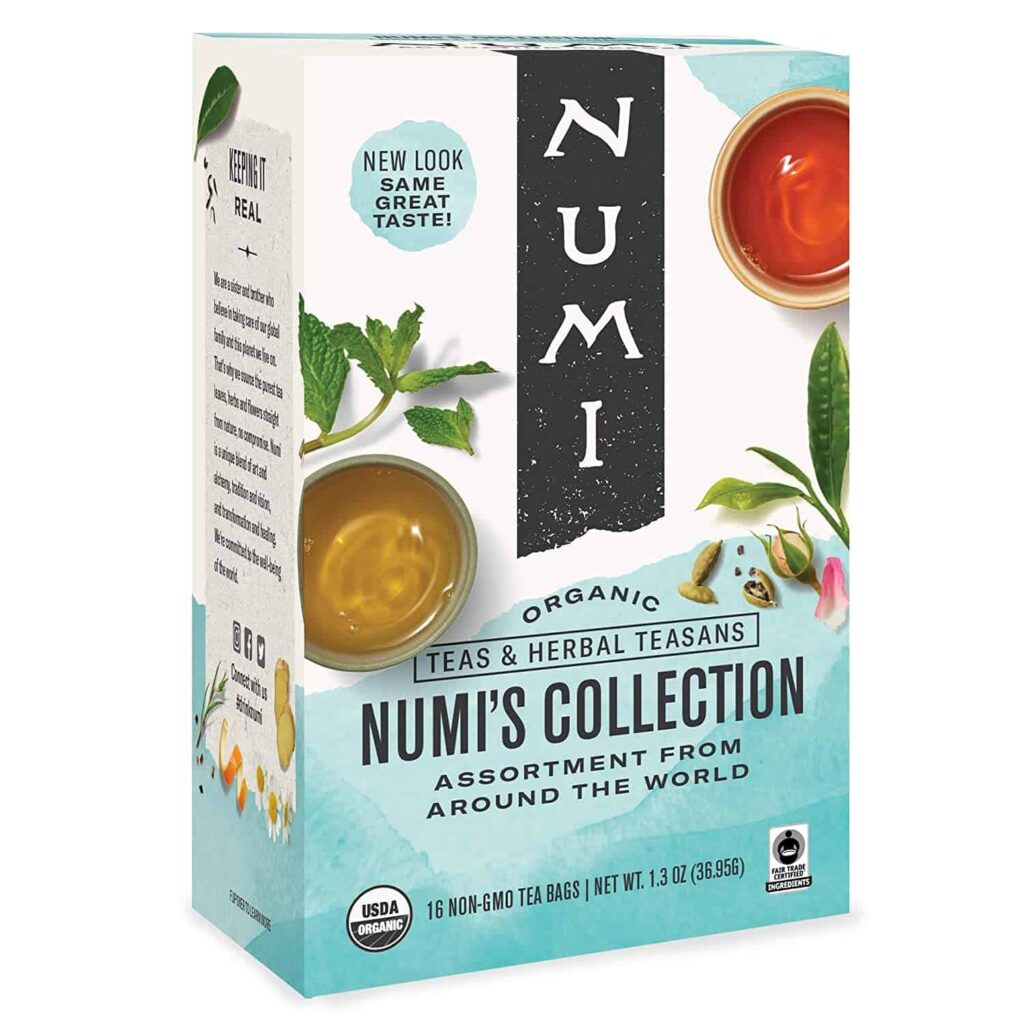
Teatulia Organic Teas Certifications: North American Tea Champion, Organic, Fair Trade, Rainforest Alliance, B Corporation, Kosher
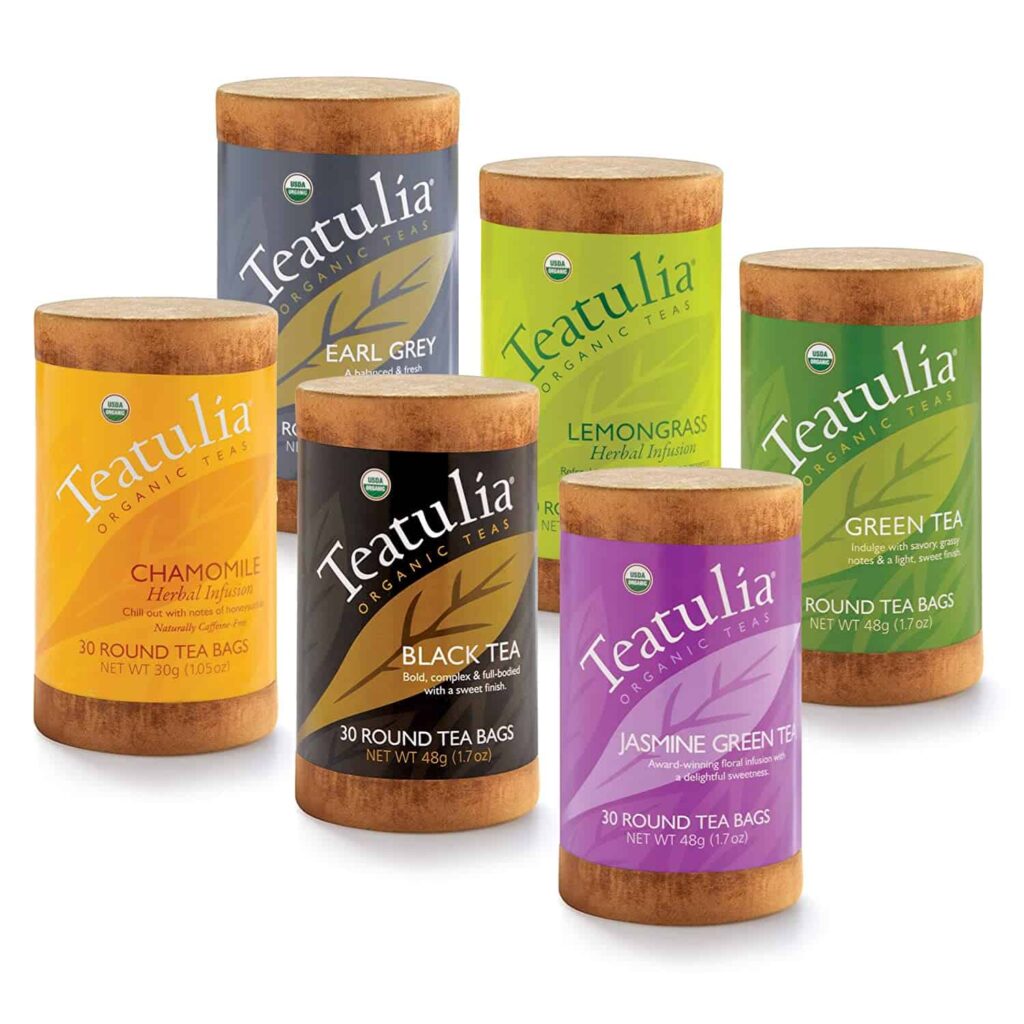
The Art of Tea Certifications: Organic, Fair Trade
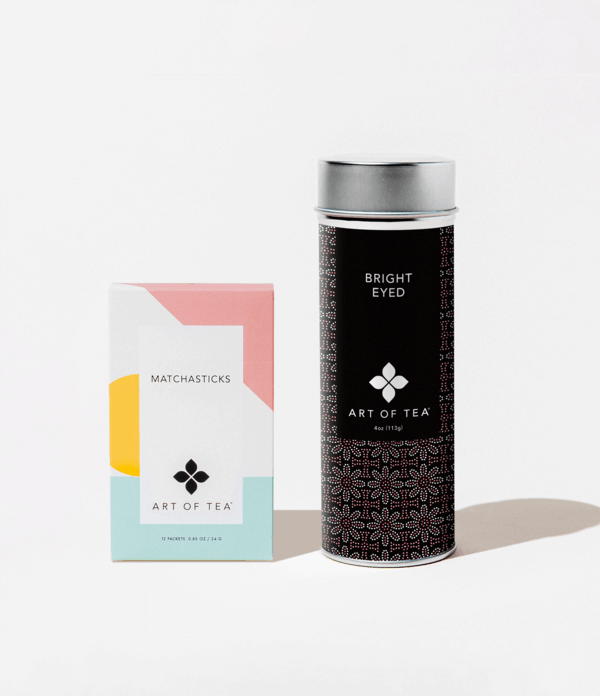
Is Organic Tea Worth the Cost?
Organic tea is usually a little more expensive than traditionally grown or non-organic teas. The flavor and health benefits of organic tea not only to those who drink it but to the environment as well make the cost difference well worth it.
Not only are you helping the environment and protecting your own health, but you are also supporting the farmers and their families who grow the tea leaves using organic practices.
Tea leaves are often grown in poorer regions of the world, so while that little bit of extra money might not mean much to you, it means a lot to those who grow it.
Now that you know about the benefits of organic tea, not only for your health, but for the health of the environment, and the farmers who grow it why would you choose anything else? What is your favorite type of organic tea to sip on and enjoy?


